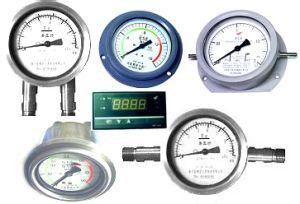 Beijing’s air quality has become more and more serious under the expanding population. To control air pollution, it is necessary to formulate systems and laws to restrict air quality. Yesterday, at the second conference of the second session of the 14th National People’s Congress in Beijing, Beijing Fang Li, a spokesperson for the Municipal Environmental Protection Agency, said that the environmental protection department will revise the law enforcement discretionary standards in light of the forthcoming Beijing Municipal Air Pollution Prevention and Control Regulations, which will be introduced in the near future.
Beijing’s air quality has become more and more serious under the expanding population. To control air pollution, it is necessary to formulate systems and laws to restrict air quality. Yesterday, at the second conference of the second session of the 14th National People’s Congress in Beijing, Beijing Fang Li, a spokesperson for the Municipal Environmental Protection Agency, said that the environmental protection department will revise the law enforcement discretionary standards in light of the forthcoming Beijing Municipal Air Pollution Prevention and Control Regulations, which will be introduced in the near future. The recent revision of the discretionary standards introduced by Fang Lifang indicated that for the forthcoming “Beijing Air Pollution Prevention Regulationsâ€, a series of detailed supporting systems and improved standards are also needed. Among them, the environmental protection department's discretionary standards for enforcement under the "Regulations" will be revised in the near future.
Discretionary power refers to the environmental protection department's discretion in determining whether to impose penalties, types of penalties, and the extent of penalties in accordance with laws, regulations, and regulations when investigating and handling environmental violations.
Fang Li said that the discretionary power is mainly to consider the total amount of pollution, the circumstances, and the degree of excessive standards. In the supporting system of the "Regulations", the discretionary power standards will come out first, because the "Regulations" are first faced with law enforcement. In the future, the environmental protection department will be fully open to public supervision.
According to Fang Li, in the process of revising the discretionary standards, there are also hearings. “We inform companies that they have the right to hear and companies can raise objections, but at present there is no objection.â€
More than 1 microgram of heavy pollution per day for 1 day, "I probably figured it out. If there is heavy pollution in Beijing for one day, it is equivalent to 1 microgram for PM2.5 average concentration." Fang Li said.
Fang Li introduced that the average concentration of PM2.5 in Beijing in 2013 was 89.5 μg/m3. The government work report stated that the target for air pollution in 2014 is to reduce the PM2.5 average concentration by 5%, which is 4.5 micrograms.
“New Year's Eve firecrackers contribute a lot to PM2.5, which can make the average annual concentration 1 microgram more.†Fang Li said that fireworks on New Year’s Eve had a great influence on the annual concentration, and if they were not released, PM2.5 would average Concentration less 1 microgram.
Bulk Molding Compound, Bulk Moulding Composite, Bmc Moulding, Bmc Molding
Dongguan Hongke Plastic Precision Mould Co.,Limited , https://www.scientificmolds.com